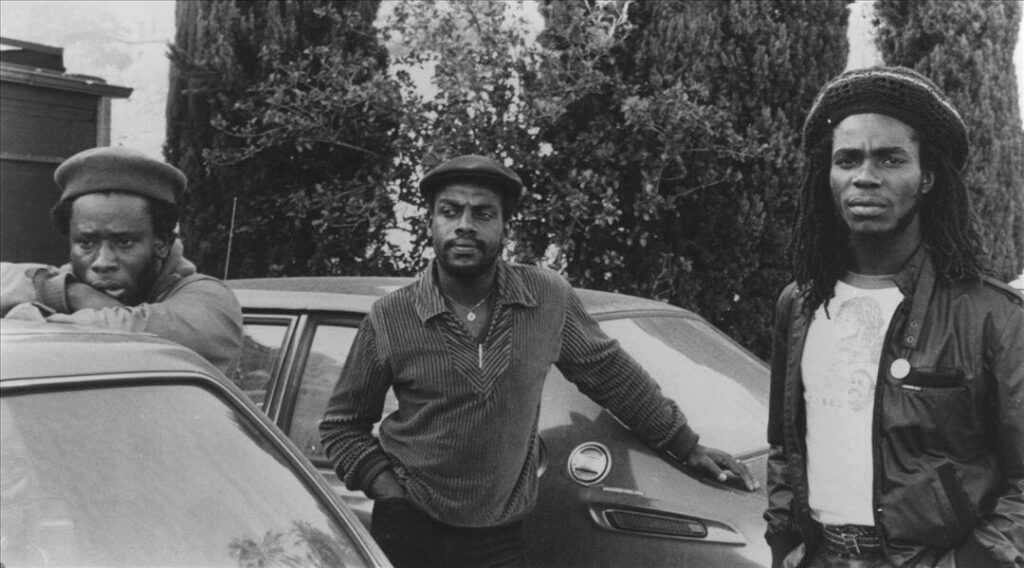
This is incredibly sad news, but I choose to celebrate lives well and purposefully led, and the certainty that they will rest peacefully know their work on earth was done, beautifully. Below an excerpt from a tribute written many moons ago.
Like the Wailers, the Mighty Diamonds are a harmonizing trio (with a killer backing band), and these three men, Donald “Tabby” Shaw, Fitzroy “Bunny” Simpson and Lloyd “Judge” Ferguson, created songs that stand tall alongside the very best reggae. Right Time manages to combine several styles and merge them in a seamless, practically flawless whole. This, to be certain, is roots reggae, yet at times it sounds like the most accessible soul music, closer to Motown than Trenchtown.
The group’s allegiance to Rastafarianism is skillfully articulated in the socially conscious lyrics, but the ten tracks on Right Time tackle romantic turmoil, violent crime, and redemption—sometimes all in one song. The title track, equally an ominous call to arms as well as a rallying cry against the system, sets an immediate tone that predicts chaos while promising resolve, pre-dating Culture’s epochal Two Sevens Clash by a year. The brilliance of the songs that follow must be heard to be believed, and it’s difficult to imagine how singing and song craft this tight, spiritual, and emotionally rich could fail to convince.
The next two songs, “Why Me Black Brother Why?” and “Shame and Pride” constitute a one-two punch that manages to invoke Marvin Gaye, Smokey Robinson and Otis Redding: Gaye’s authentic words, Smokey’s silken voice, and Redding’s gut-rending fervor. If the world was right side up, all of these songs would be standards, familiar to anyone who listens to the soul legends mentioned above.
The album’s highlight may be the resplendent anthem “I Need a Roof”—-a rather uncomplicated piece of poetry that invokes Marcus Garvey and Jesus Christ with its (obvious) insistence that without shelter there can be no peace, and without justice there can be no love. Listen: even writing about this record, albeit while offering the highest possible praise, inexorably mutes the message. That message is conveyed with voices that must be heard so that the music can make sense. Go seek it out.
